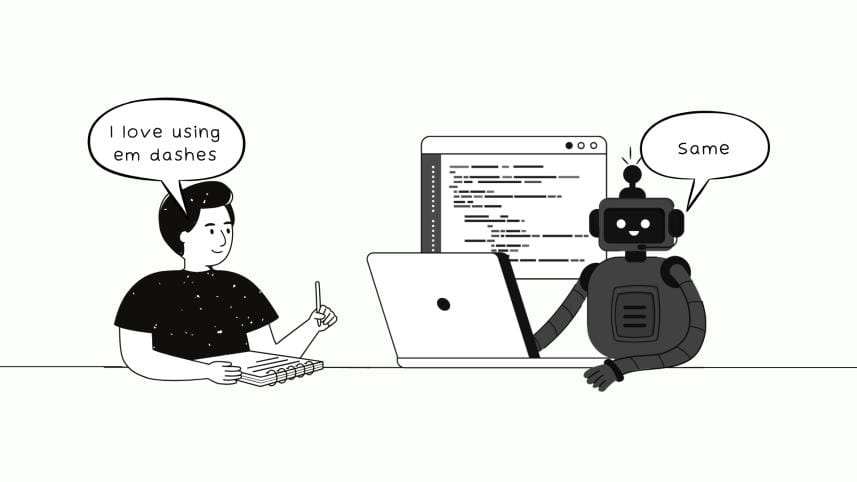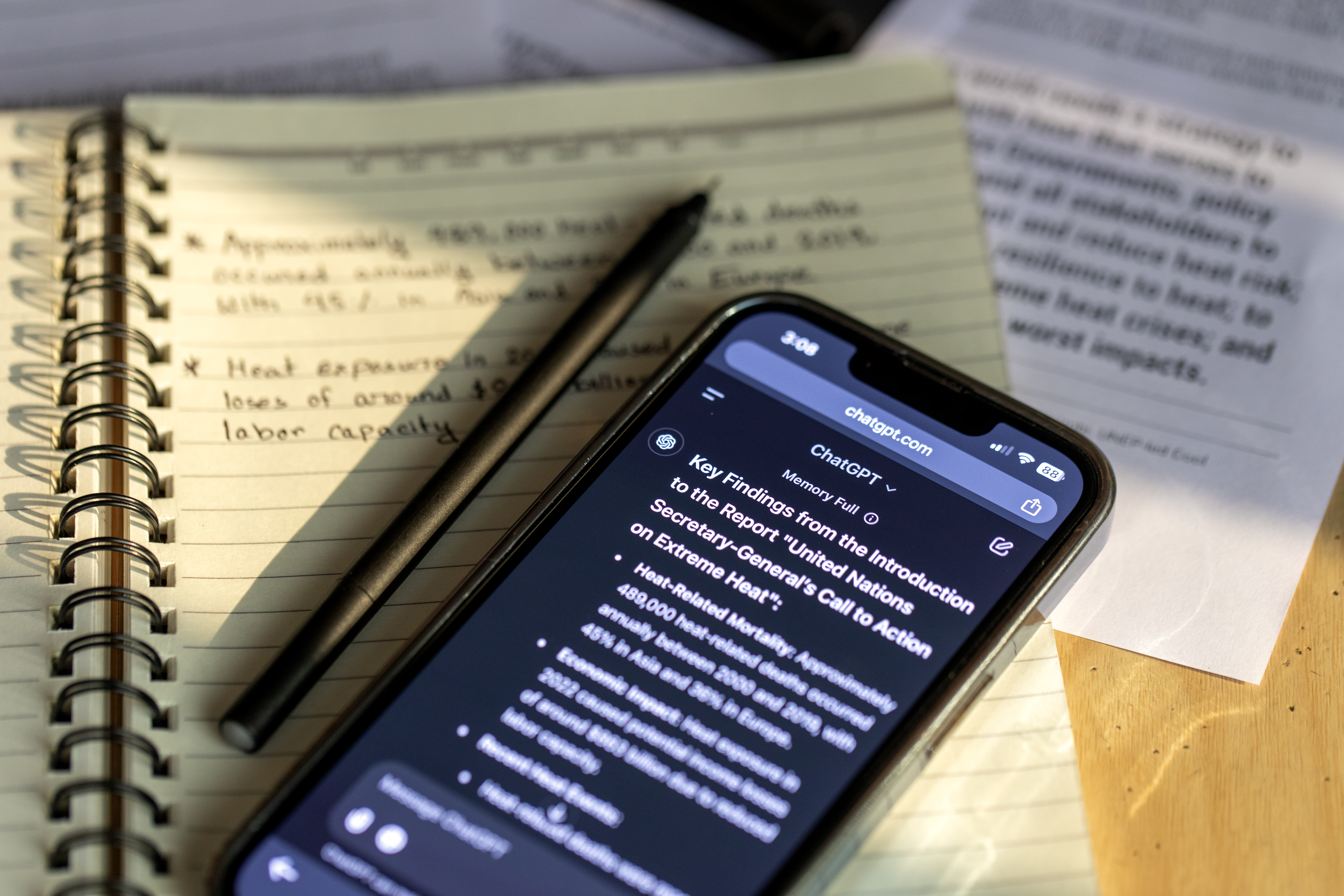Em dashes: A telltale sign of AI writing?

When I was in the fifth grade at a semi-reputable English-medium school in Dhaka, a friend had the audacity to make fart noises in class and pin the blame on me. Mind you, this was a school where we had to converse in English no matter what, regardless of how awful many of the students (and some teachers) were at it. I told the instructor, "Ma'am, I was totally framed. I didn't do it."
She instantly hit my palm with a steel ruler in a belligerent fashion. "What do you mean you were 'framed'? Are you a picture?" The worst part was that she knew I wasn't the one who made the noises. She just punished me for using a word in a context she wasn't familiar with.
So, why go through the trouble of narrating a story that has nothing to do with AI or writing? Well, this was the first time in my life that I felt I was punished for being good at English, a language I have had a distinctive passion for.
After two decades, the feeling crept up again when I saw a cheeky Facebook status which read, "You can spot ChatGPT's writing when it uses an em dash in the middle of a sentence, as no human would typically use that punctuation in casual conversation."
Of course, this was not the first time I had seen such assumptions play out. Over the past year, I have had several colleagues tell me their work was flagged by AI detection tools as "likely AI-generated". These weren't students trying to game the system or marketers pumping out blogspam. These were seasoned writers—journalists, novelists, essayists—who had spent years honing their craft. And yet, because their prose flowed a little too well, they were accused of being machines.
Essentially, writers are being punished for being good at their craft, and that is an alarming sentiment. In this instance, for example, em dashes are a particular trigger. Yet this piece of punctuation—used liberally by everyone from Emily Dickinson to Joan Didion—has long been prized for its ability to create pauses and shifts in tone. Suggesting no human "ever" uses it betrays a narrow view of what writing should sound like. It also risks flattening prose into the kind of blandness that, paradoxically, AI is often criticised for.
The stakes are not just aesthetic. For young writers, especially, the message is clear: don't write too well, or you may have to prove you didn't cheat. For educators and editors, there's a temptation to lean on flawed software instead of exercising judgment. And for working writers, there's the absurdity of having to defend their humanity each time they submit a polished draft.
It's tempting to laugh off that Facebook post, to dismiss it as a casual throwaway. But it reflects a deeper unease about authorship in the age of AI—a growing suspicion that the human touch is indistinguishable from the synthetic.
So let me say this plainly: Do not 'frame' good writing as a product of AI, especially when AI detection tools are in their infancy. I will not give up my em dashes because someone fails to recognise a good writer.




 For all latest news, follow The Daily Star's Google News channel.
For all latest news, follow The Daily Star's Google News channel. 
Comments